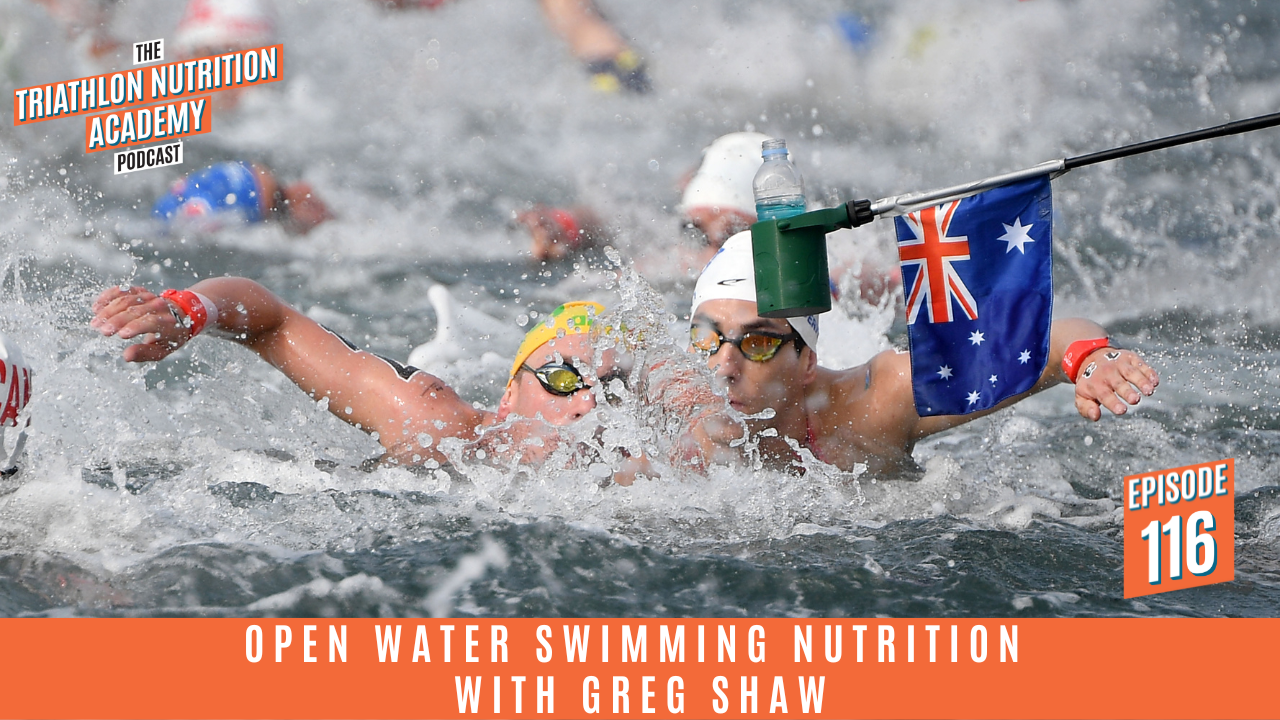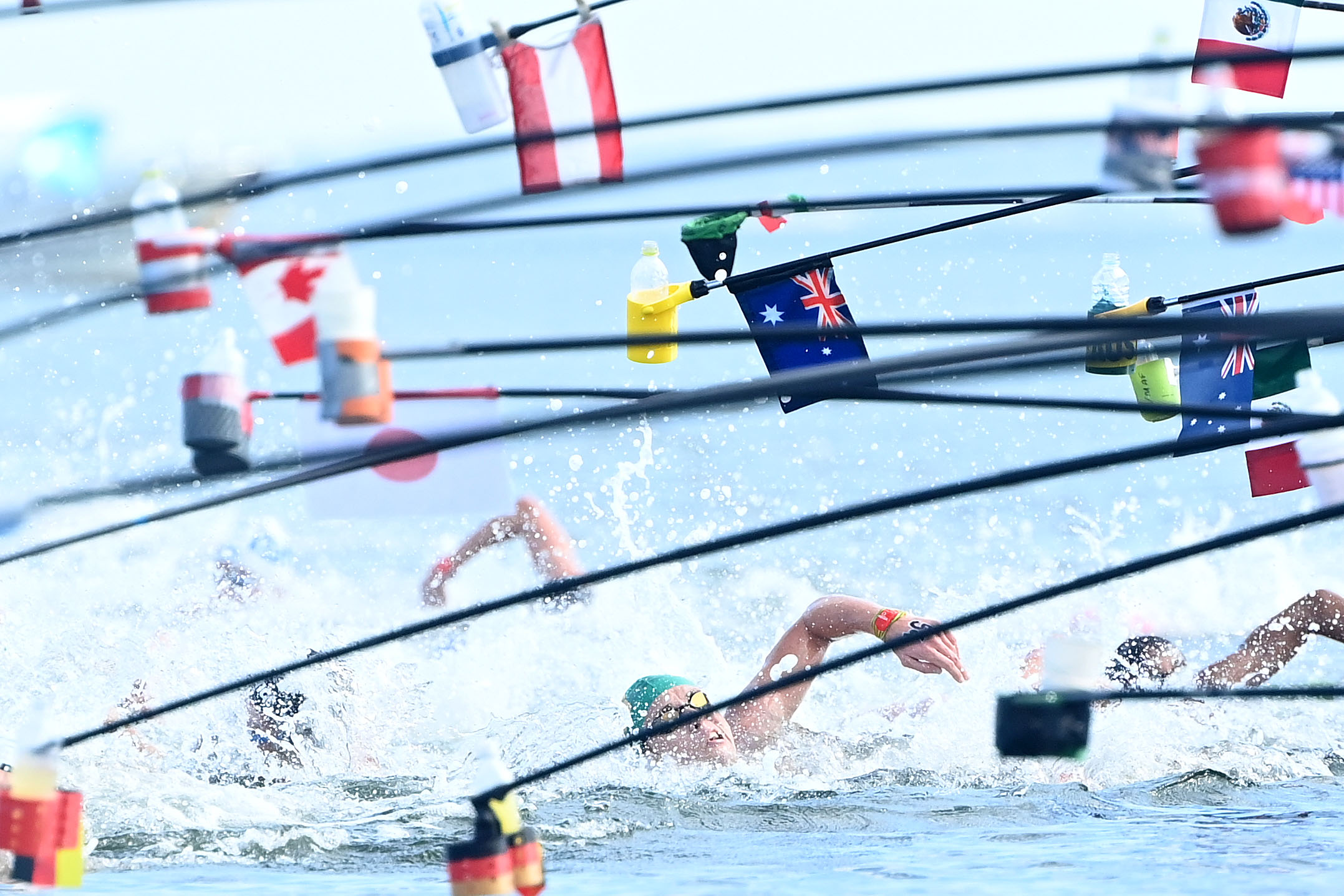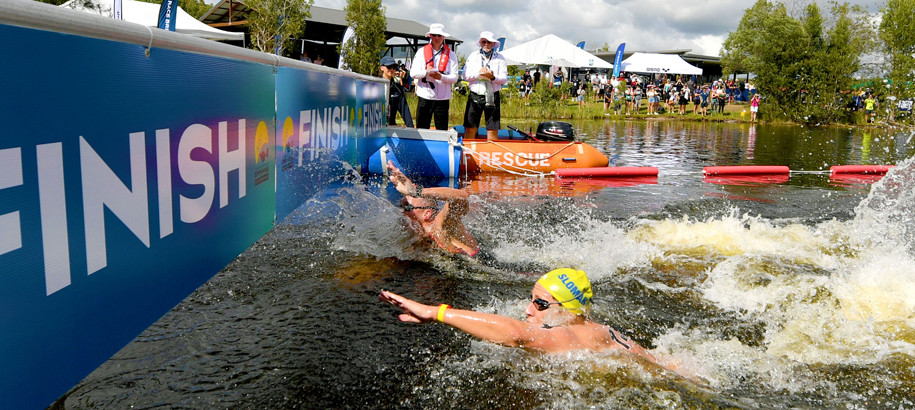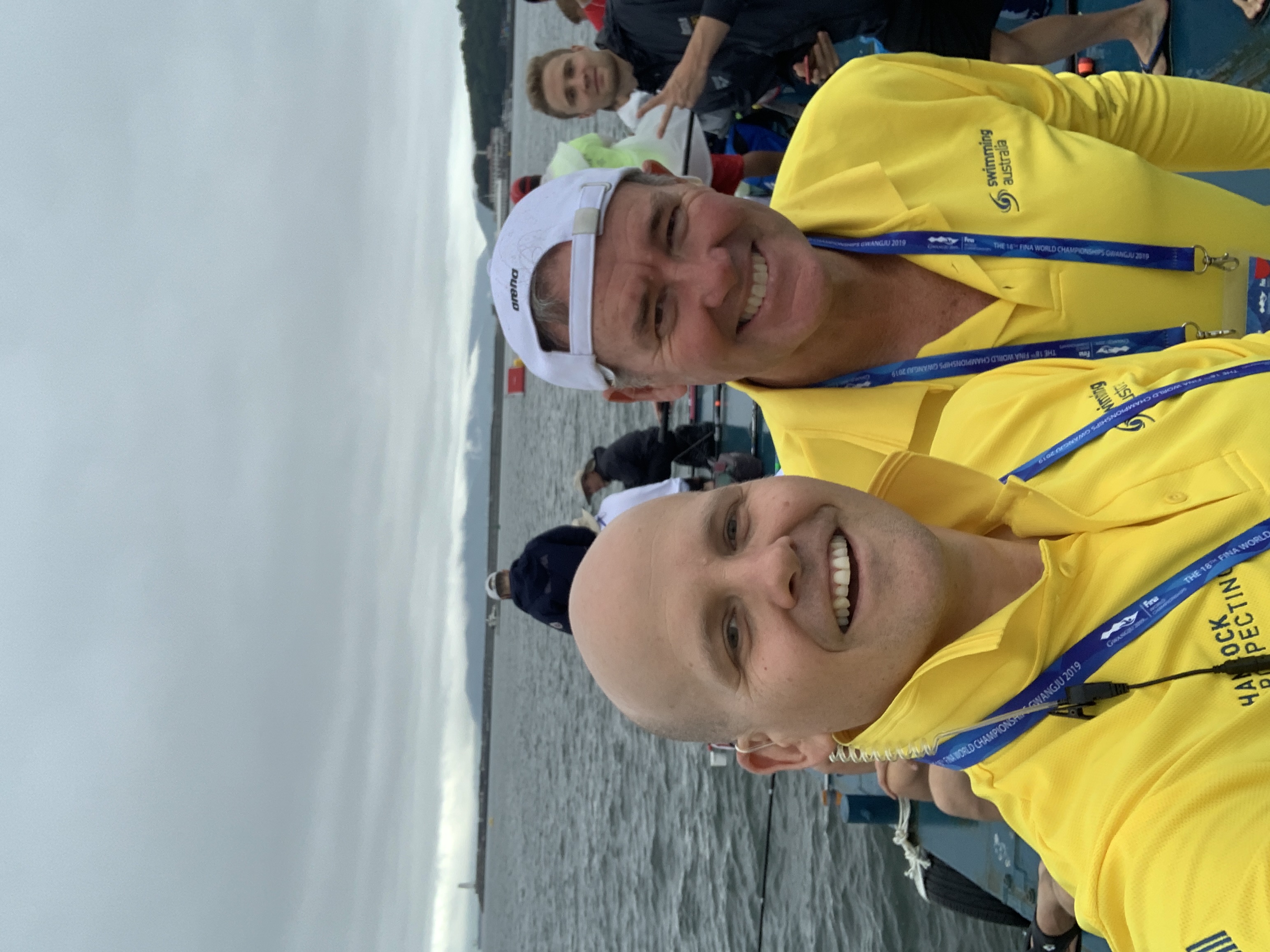Open Water Swimming Nutrition with Greg Shaw

Conquering an open water swim brings a unique set of nutrition challenges.
The cold water, wetsuits, and limited feed zones require some savvy fueling strategies.
To help you nail your nutrition for open water events, we tapped the expertise of sports dietitian Greg Shaw. Greg has over 20 years of experience working with elite open water swimmers. He shared his top tips to help you avoid the bonk and negative gut issues during your next open water endeavor.
Fuel Right For Your Swim Distance
- For swims under 5km, loading muscle glycogen beforehand is often adequate. Exogenous carbs during the event may not be needed.
- Once you go over 10km the arms become significantly glycogen depleted. Taking on carbs during the swim is crucial.
- Know your anticipated intensity. Faster paces demand more carb oxidation from muscles. Plan nutrition needs accordingly.

Load Up On Carbs
- For long swims, carbohydrate loading can extend endurance by maximising glycogen stores.
- How much to load depends on the feeding opportunities. Point to point swims with limited feed access requires more loading than laps with regular feed zones.
Practice Your Feeding Strategy
- Test gear like bottles in training to optimise drinking ease and minimise issues.
- Tailor carb/electrolytes for anticipated water conditions (salt vs. fresh).
- Work up to target carb/fluid intake over multiple long workouts to normalise digestion.
Watch The Thermostat
- Cool water below 20°C won’t require much hydration whereas above 27°C increases sweat rates.
- Over 28.5°C causes profuse sweating without effective evaporative cooling. Hydration needs a spike.
- Wetsuits above 24°C likely lead to more copious sweating than non-wetsuit swims.

Keep Calm
- If you swallow salty water, don’t panic. The body can handle it without over hydrating.
- Have a plan if you miss a feed or feeder directions aren’t clear. Avoid stressing.
- Staying calm and logical will help you manage any nutrition hiccups on race day.

Greg’s advice demonstrates how open water swimming nutrition requires diligent planning and practice.
You need to prepare your body for the unique conditions through loading, acclimation, and gut training. Don’t leave fueling strategies to chance.
Put in the work beforehand to have a seamless, stress-free nutrition experience on race day.
With the right preparation, you’ll be ready to conquer your open water swim fueled for optimal performance.
To dive deeper, listen to the Triathlon Nutrition Academy Podcast, EP 116 - Open Water Swimming Nutrition with Greg Shaw
If you are interested in learning more about the Triathlon Nutrition Academy Program and what it can do for you, head HERE to learn more.




